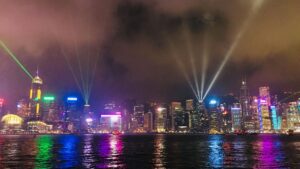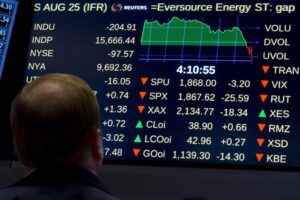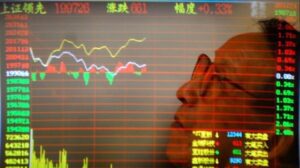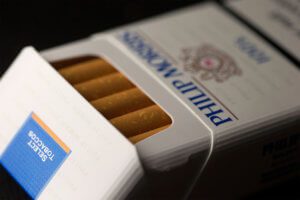
Hong Kong authorities have decided to cancel the requirement for a coronavirus vaccination certificate for those arriving in the region, PCR tests are still required, according to the press service of China’s special district government.
“As of Feb. 6, the requirement for full vaccination for nonresidents of Hong Kong arriving from abroad is removed. Travelers do not need to be vaccinated and present a certificate of vaccination upon arrival in Hong Kong. Mandatory testing for coronavirus for those arriving from abroad remains in place,” the report said.
According to the government, the epidemic situation in Hong Kong remains stable despite an increase in the number of visitors.

Asia-Pacific stock indices rebounded positively on Monday after the U.S. stock market rallied at the end of last week.
Australian and Hong Kong stock exchanges as well as U.S. and most European countries are closed because of the Christmas holiday.
The Bank of Japan is not going to abandon its ultra-soft monetary policy any time soon, Central Bank Governor Haruhiko Kuroda said.
Last week, the Japanese central bank unexpectedly widened the range within which the yield on ten-year government bonds can fluctuate to plus/minus 0.5% per annum from plus/minus 0.25% previously. Investors took that as a signal that the Bank of Japan was preparing to abandon the ultra-soft monetary policy that it had been pursuing for years.
But Kuroda on Monday rebutted that view, saying that the corridor widening was aimed at boosting the effect of monetary policy and was not the first step in abandoning a major stimulus program. He also noted that the country’s consumer inflation rate could slow below the Bank of Japan’s 2% target in the next fiscal year, which begins in March 2023.
The value of Japan’s Nikkei 225 index rose by 0.65% in trading.
Shares of electronic components maker Sharp Corp. (+3.6%) and commodity companies including JGC Holdings Corp. (+3.5%), Inpex Corp. (+2.5%) and Nippon Steel Corp. (+2.3%) were among the leaders.
In addition, chip maker Advantest Corp. (+1.2%), clothing retailer Fast Retailing (+2%), consumer electronics maker Sony Group (+0.3%), automakers Nissan Motor (+1.9%) and Toyota Motor (+0.3%) went up.
Mitsubishi Electric Corp. and Mitsubishi Heavy Industries Ltd. announced Monday that they intend to merge their generator businesses to become more competitive in the market. The companies plan to sign a definitive agreement at the end of May 2023 and complete the merger of the units by April 1, 2024. Mitsubishi Electric is expected to become the majority shareholder of the new merged company, while Mitsubishi Heavy Industries will become a minority shareholder.
Mitsubishi Electric’s share price rose 1.3 percent and Mitsubishi Heavy Industries rose 2.7 percent.
China’s Shanghai Composite index gained 0.65% over the day.
Technology and consumer companies, including Huizhou China Eagle, up 1.5%; Shenzhen Infinova, Zhejiang Netsun and Xi’an Catering, up about 10%; and automaker BYD, up 4.1%.
The People’s Bank of China on Monday provided banks with 216 billion yuan ($30.9 billion) in reverse repurchase transactions to ensure sufficient liquidity in the financial system at the end of the year. Last week the net inflow of funds into the country’s financial system amounted to 704 billion yuan, the highest weekly infusion since October.
The value of the South Korean Kospi index increased by 0.15%.
Stocks of one of the world’s largest chip and electronics maker Samsung Electronics Co. fell 0.3% and automaker Hyundai Motor rose 0.6%.
A strong rise in quotations showed securities of pharmaceutical companies Kyongbo Pharmaceutical and Samil Pharmaceutical – by 16.3% and 4.5%, respectively.

Asian stock indices started the working week without any dynamics, while the stock markets of mainland China and Hong Kong went negative on the statistics.
China’s economy expanded 3.9% in the third quarter compared to the same period last year, the State Bureau of Statistics (GSO) said. Thus, the growth rate accelerated significantly compared to 0.4% in April-June. Analysts on average expected an increase of 3.4-3.5%.
China’s GDP in January-September increased by 3%. This is significantly below the target set by the authorities of the country as a whole for 2022 at the level of about 5.5%, experts say.
Retail sales in the country in September increased by 2.5% compared to the same month a year earlier, the CSO also reported. This is the minimum rate of recovery over the past four months. The consensus forecast assumed growth of 3.3%.
China’s foreign trade surplus widened unexpectedly in September, as import growth was significantly weaker than exports. Imports increased by only 0.3% in annual terms, exports grew by 5.7%. Analysts polled by The Wall Street Journal, on average, predicted the growth of the first indicator by 1%, the second – by 4%.
The Chinese Shanghai Composite index decreased by 1.2% by 08:37 Moscow time. Hong Kong’s Hang Seng plunged 5.4% to its lowest in more than thirteen years.
Shares of Internet companies Meituan (SPB: 3690) (-12.4%), Baidu Inc. (SPB: BIDU) (-10.7%) and Tencent (SPB: 700) Holdings Ltd. (-9.2%), as well as the developer Longfor Group Holdings Ltd. (-12.2%).
Retailers Alibaba Group (SPB: BABA) and JD.com Inc. (SPB: JD) lost 10.4% and 11%, respectively.
Among the components of Hang Seng, only six stocks show an increase in value, including HSBC bank (+0.5%), developer CK Infrastructure Holdings Ltd. (+3.4%) and electrical equipment manufacturer Techtronic Industries Co. (+1.1%).
The value of the Japanese Nikkei 225 increased by 0.5% by 08:33 Moscow time.
The stocks of the transport companies Kawasaki Kisen Kaisha Ltd. have risen most significantly. (+4.4%), Mitsui O.S.K. lines ltd. (+4.2%) and Nippon Yusen K.K. (+3.7%), as well as non-ferrous metal producer Sumitomo Metal Mining Co. (+4.1%).
The South Korean Kospi index added 0.9% by 08:30 Moscow time.
Quotes of securities of one of the world’s largest manufacturers of chips and electronics Samsung Electronics Co. rise by 2.7%, while the cost of automaker Hyundai Motor fell by a similar amount.
The Australian S&P/ASX 200 rose 1.5%.
The capitalization of the world’s largest mining companies BHP and Rio Tinto increased by 2.6% and 1.2%, respectively.
In addition, shares of all four largest banks in the country fell in price: Commonwealth Bank – by 1.2%, ANZ Bank – by 0.2%, Westpac Banking – by 0.6% and National Australia Bank – by 0.7%.

Philip Morris Ukraine, one of the largest tobacco producers in Ukraine, in February 2018 started shipments of Kharkiv Tobacco Factory’s products to Hong Kong.
“Now the Philip Morris Ukraine products made at the tobacco factory in Kharkiv region are sold in 13 countries, including Japan, Georgia, Armenia, Moldova, Albania, Saudi Arabia and other countries of the Persian Gulf. Since February 2018, we have been manufacturing products for the duty free zone in Hong Kong, having started with one SKU [stock keeping unit] – Virginia,” Philip Morris Ukraine Director for Corporate Affairs in Ukraine, Georgia, Armenia and Moldova Nataliya Bondarenko said at the third Kharkiv Investment Forum.
According to her, more than 40% of the company’s cigarettes are exported.
“Philip Morris Ukraine’s tobacco factory produces not only cigarettes, but also shredded tobacco, filters for other factories in Eastern Europe, the Middle East, Africa and the European Union for export,” Bondarenko said.
Over $117 million has been invested in the construction and modernization of the factory, she said. At present, the production facility located on 32 hectares has a full production cycle and its design capacity exceeds 30 billion cigarettes a year.
“With the assistance of the government and the creation of the necessary conditions for business development, we can produce 20-30% more, developing at the international level as an export hub. Philip Morris Ukraine has temporarily suspended the development of export capacities in connection with a trial related to UAH 635 million,” she said.
Court proceedings were launched in May 2016 after the company’s tax dispute with the State Fiscal Service of Ukraine, which accuses the company of violations in imports of raw materials and exports of cigarettes, as well as of the illegal use of the Marlboro trademark.